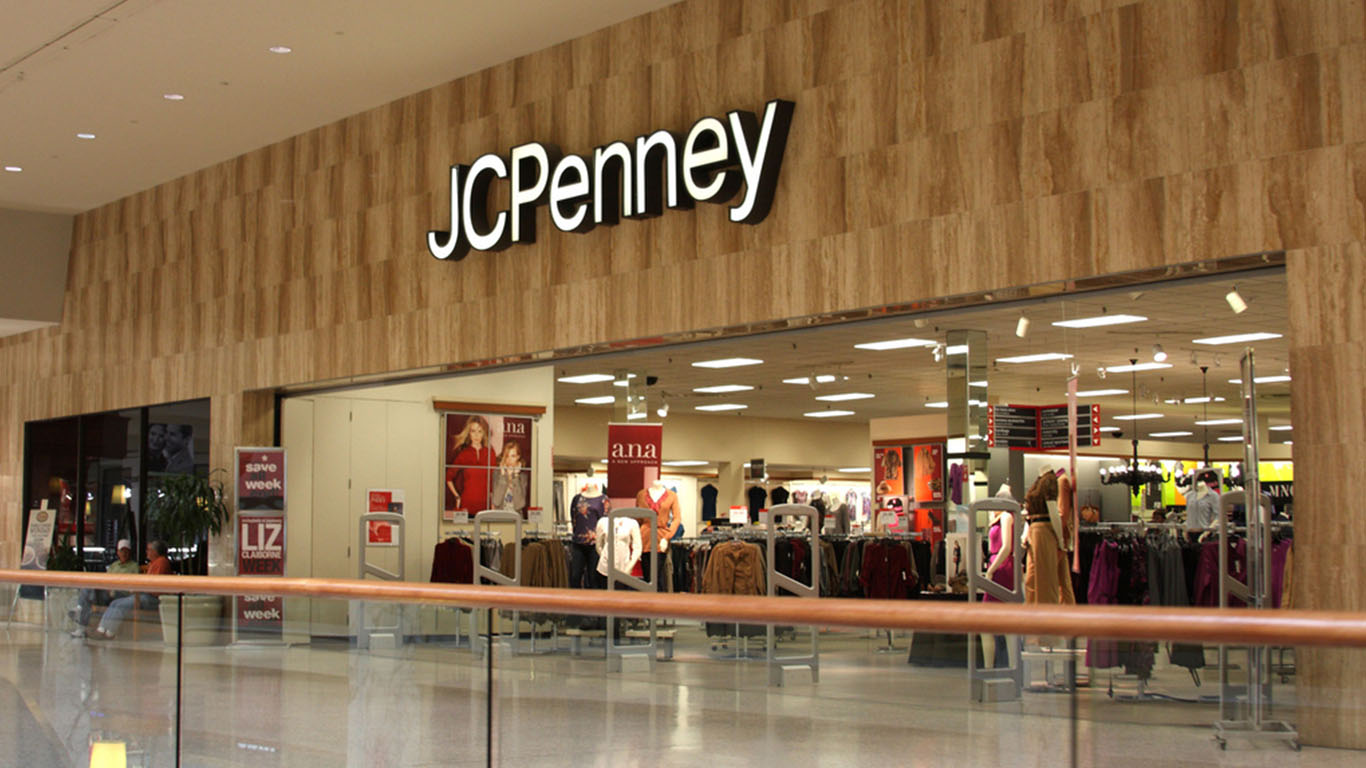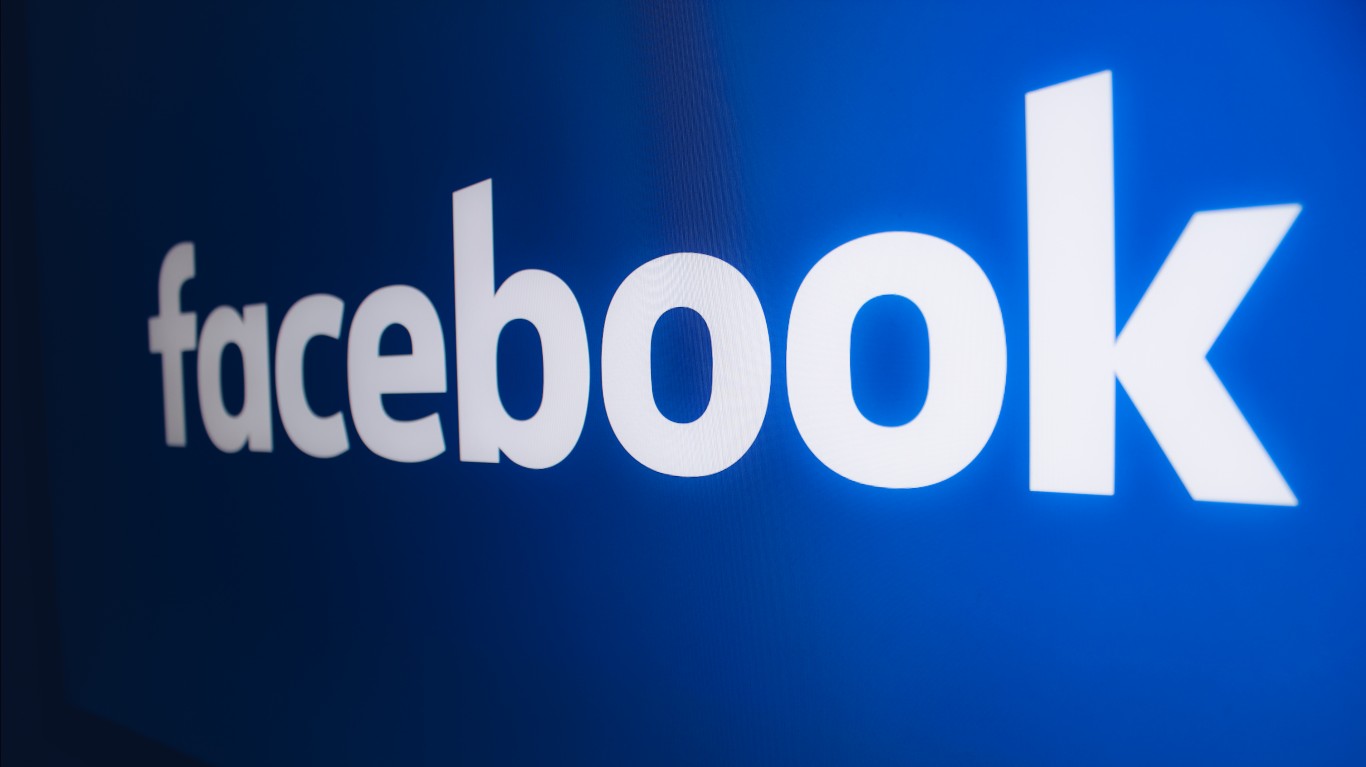
The COVID-19 pandemic has played havoc with the retail landscape as malls and stores have been forced by state governments to close their doors. Cutting off the brick-and-mortar revenue stream has stressed many retailers, especially those that were already challenged before the coronavirus changed the world.
Crew and Neiman Marcus filed for bankruptcy last week. Stage Stores (NYSE: SSI), which operates about 800 smaller department stores, filed for bankruptcy on Sunday.
J.C. Penney Co. Inc. (NYSE: JCP) is widely expected to seek bankruptcy protection as soon as this week. The company did not make a $17 million interest payment that was due on May 7. It also missed a $12 million debt payment on April 15. The grace periods on the missed payments run out on Thursday and Friday.
Debt Payments Missed in April and May
The company, which has about 85,000 employees, notified the Securities and Exchange Commission of its intention to miss the May debt payment, saying it was evaluating “certain strategic alternatives, none of which have been implemented at this time.”
J.C. Penney stock fell 9.12% in Monday trading, closing at $0.1545. It dropped below $1 a share in January and has been in a downward trajectory since then. J.C. Penney’s share price is down 86% so far this year and has fallen so low that the company risks being delisted by the New York Stock Exchange even if it doesn’t file for bankruptcy.
This turning point for J.C. Penney comes even as parts of the country are loosening their lockdown restrictions. In various states, restaurants, stores and personal service businesses are reopening.
Simon Property Group (NYSE: SPG), the nation’s largest mall owner, said Monday that it would have about 50% of its 200 properties open within the next week.
“Our safety protocols include pre-emptive employee health screening, employee safety protections, promotion and enforcement of social distancing practices, enhanced sanitizing and disinfecting and, of course, shopper safeguards,” David Simon, chairman and chief executive, said Monday in an earnings call with analysts. “These protocols meet or exceed the guidelines published by the CDC and are more robust than many of the measures deployed by essential businesses and online fulfillment centers that have remained open during this pandemic.”
Simon’s net income for the first quarter fell about 20%. But it still intends to declare a dividend in the second quarter before the end of June.
Dispute With Sephora Resolved
Even with bankruptcy looming, J.C. Penney, based in Plano, Texas, announced last week that it had reached an agreement with Sephora to continue its arrangement for the cosmetics company to be the exclusive makeup provider in J.C. Penney stores.
“Both companies worked constructively to resolve outstanding legal matters and have agreed to mutually beneficial revisions to their joint enterprise operating agreement,” J.C. Penney said in a news release.
Since 2009, Sephora has been the exclusive cosmetics provider for J.C. Penney. But the relationship hit some bumps recently. J.C. Penney persuaded a Texas state court to grant a temporary injunction requiring Sephora to keep its boutiques open inside the stores. But Sephora, which is a unit of LVMH Moet Hennessy Louis Vuitton, countersued, moving the case to federal court.
J.C. Penney contended that Sephora was trying to shorten the time left on the contract, which runs for four more years.
“Sephora has no right to demand an early exit from the parties’ contract” which would “cause immediate and irreparable harm to JCP—which depends on Sephora as its only beauty partner and could not obtain a new beauty partner without reasonable lead time,” J.C. Penney said in its suit.
Sephora responded: “Although this is a sudden and unfortunate development, we are hopeful of continuing discussions and reaching an amicable agreement for both Sephora and J.C. Penney.”
Watching to See Whether Shoppers Return
As some states cautiously re-open or partly re-open, Wall Street is watching a number of troubled retailers, including Sears, Gap Inc. (NYSE: GPS), Ascena Retail Group (NASDAQ: ASNA), Land’s End (NASDAQ: LE), Tailored Brands (NYSE: TLRD) and Brooks Brothers.
It remains unclear whether shoppers will be willing to return to stores. Some consumers may be reluctant because of continuing fears of infection by COVID-19. Others may not have money available to spend with unemployment at its highest level since the Great Depression.
The U.S. economy lost 20.5 million jobs in April, pushing the unemployment rate to 14.7%, according to the U.S. Bureau of Labor Statistics. That compares with February’s jobless rate of 3.5%, a historic low.
Are You Still Paying With a Debit Card?
The average American spends $17,274 on debit cards a year, and it’s a HUGE mistake. First, debit cards don’t have the same fraud protections as credit cards. Once your money is gone, it’s gone. But more importantly you can actually get something back from this spending every time you swipe.
Issuers are handing out wild bonuses right now. With some you can earn up to 5% back on every purchase. That’s like getting a 5% discount on everything you buy!
Our top pick is kind of hard to imagine. Not only does it pay up to 5% back, it also includes a $200 cash back reward in the first six months, a 0% intro APR, and…. $0 annual fee. It’s quite literally free money for any one that uses a card regularly. Click here to learn more!
Flywheel Publishing has partnered with CardRatings to provide coverage of credit card products. Flywheel Publishing and CardRatings may receive a commission from card issuers.
Thank you for reading! Have some feedback for us?
Contact the 24/7 Wall St. editorial team.
 24/7 Wall St.
24/7 Wall St.


